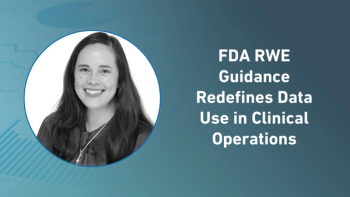
Overcoming the Challenges of Real-World Data Capture in Observational Studies
In this three-part blog series, we look at how electronic platforms can support and enhance data capture in several types of RWD programs: observational studies, pragmatic trials, and commercial programs.
The capture of patient generated Real-World Data (RWD) is increasing the influence and value of the ‘patient voice’ in RWE and healthcare decision making. The electronic capture of RWD is facilitating this by overcoming the challenges presented by paper-based capture.
In this three-part blog series, we look at how electronic platforms can support and enhance data capture in several types of RWD programs: observational studies, pragmatic trials and commercial programs. We reveal the challenges of RWD capture in each setting and how technological solutions can overcome them.
Here, we focus specifically on observational studies, including why they are an important source of RWD, and why electronic data capture platforms are essential to ensuring effective RWD capture in this setting.
What are observational studies?
In post-marketing research, observational studies are used to assess health outcomes in a group of patients as they take a new treatment. They are non-interventional by design, recording what happens to patients via patient reported outcomes (PROs). These studies often involve capturing patient data from geographically diverse populations over long periods of time.
What are the primary challenges of observational studies?
A substantial burden can be placed on patients to complete regular and timely data entries using paper forms. This burden must be carefully balanced; too little and the integrity of the data will be compromised, while too much will tip the scales and may impact patient outcomes.
How can technological solutions help?
Electronic data capture platforms used on patients’ own devices (smartphone, tablet, etc.) can help to reduce the burden placed on participants in observational studies. Since they are already familiar with their own devices, patients find it easier and quicker to provide accurate data entries. This approach enables studies to offer a light level of support, limiting intervention and the introduction of bias, while being widely accepted by ethics committees. Digital platforms also enable the use of data protection and privacy tools to ensure security and adherence to clinical rigor.
Electronic data capture platforms overcome the limitations of paper-based data entries. For example, they allow reminders to be sent to participants to complete data entries on time, are globally scalable, and are adaptable to different healthcare systems and languages to ease RWD capture wherever patients are in the world.
Conclusion
Digital platforms ensure the efficient capture of high quality RWD in observational studies by reducing the burden placed on patients and overcoming the limitations of paper-based data collection, generating a rich source of RWE that represents the voice of the patient and informs meaningful healthcare decisions.
Check back next week for Part 2 of the series, ‘Generating a Rich Source of Data through Pragmatic Clinical Trials.’
Tim Davis, VP, Digital Patient, ERT
Newsletter
Stay current in clinical research with Applied Clinical Trials, providing expert insights, regulatory updates, and practical strategies for successful clinical trial design and execution.




